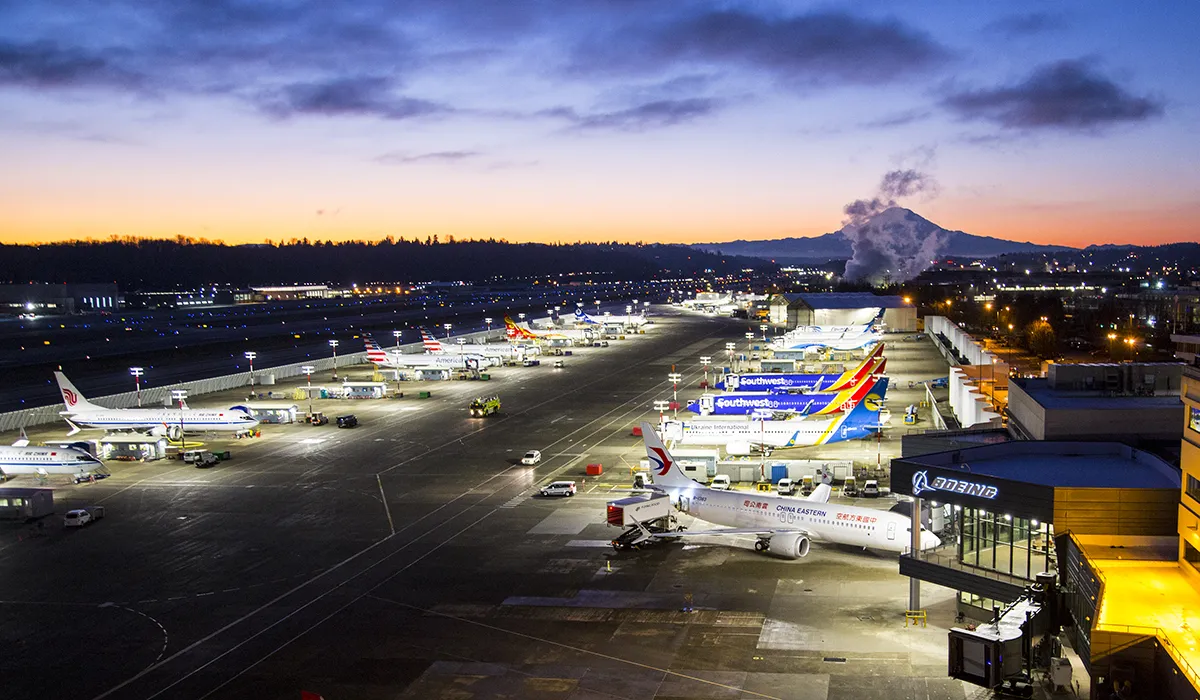
Boeing quits Chicago for Arlington, Virginia.
May 06, 2022

Boeing has announced its decision to relocate its corporate headquarters from Chicago to Arlington, Virginia. This move reflects the company's desire to be closer to key government and defense stakeholders, given its significant role in the aerospace and defense sectors. The shift is expected to enhance collaboration with federal agencies and better align with the company’s strategic priorities. Boeing's departure from Chicago marks a significant change, as the company had been based there for nearly a century. The new location in Arlington offers proximity to Washington, D.C., and a talent pool that can support its future growth and innovation initiatives.
Boeing, one of the world's largest aerospace companies, has made headlines recently by announcing its decision to relocate its headquarters from Chicago to Arlington, Virginia. This move marks a significant shift for the company and raises various implications for its operations, workforce, and the aerospace industry as a whole. The decision is largely influenced by several factors, including talent acquisition, operational efficiency, and strategic positioning.
Reasons Behind Boeing's Move
Several key reasons have driven Boeing to make this monumental shift:
- Proximity to Government Agencies: Being closer to policymakers and regulatory bodies in Washington, D.C., allows Boeing to engage more effectively with the government on critical issues such as defense contracts and aerospace regulations.
- Access to a Skilled Workforce: Arlington offers a highly educated workforce, with numerous universities and tech hubs nearby. This talent pool is essential for Boeing as it continues to innovate and expand its capabilities.
- Cost of Living and Quality of Life: The cost of living in Arlington, while higher than in Chicago, is accompanied by a better quality of life, which can help attract and retain employees.
Impact on Boeing's Operations
The transition from Chicago to Arlington will have several operational implications for Boeing:
- Enhanced Collaboration: The new location is expected to foster better collaboration between different divisions of Boeing, especially with its defense and space operations, which are critical to its overall business strategy.
- Increased Visibility: Being in Arlington places Boeing in the spotlight of national discussions concerning aerospace and defense, potentially leading to increased business opportunities.
Economic Implications for Chicago and Arlington
Boeing's decision will undoubtedly have economic ramifications for both cities:
| Impact | Chicago | Arlington |
|---|---|---|
| Job Losses | Approximately 2,500 jobs may be affected | Expected job growth in the region |
| Local Economy | Potential downturn in local business revenue | Boost in local economy due to new investments |
| Real Estate Market | Possible decline in commercial real estate value | Increase in demand for office spaces and housing |
Future Prospects for Boeing
As Boeing transitions to Arlington, it opens up new avenues for growth and innovation:
- Investment in Technology: Boeing is likely to increase its investment in technology and research initiatives, leveraging the local talent and resources available in Northern Virginia.
- Increased Collaboration with Tech Firms: The proximity to tech companies and startups can lead to partnerships that enhance Boeing's technological capabilities.
Conclusion
Boeing's relocation from Chicago to Arlington, Virginia, represents a strategic move aimed at enhancing its operational efficiency and securing a competitive edge in the aerospace industry. While the decision poses challenges for Chicago, it also presents significant opportunities for Arlington and Boeing's future growth. As the company embarks on this new chapter, stakeholders will be keenly watching how this transition unfolds and what it means for the broader aerospace landscape.
In summary, Boeing's shift to Arlington is a calculated decision shaped by the need for better access to government resources, a skilled workforce, and enhanced operational capabilities. As the aerospace giant looks to the future, its ability to adapt and innovate will be crucial for maintaining its status as a leader in the industry.
Related Articles

Explore Thailand: The Best Islands to Visit for Paradise, Adventure, and Relaxation

The Ultimate Guide to the Best Islands in Thailand for Your Next Getaway

Do babies need passports? How to get a passport for a newborn

How to get a U.S. passport fast: here’s how to expedite the process

What is Mobile Passport Control: 5 reasons why you should use it

SENTRI vs. Global Entry: A detailed guide

Do you need a passport to go to the Bahamas? Let’s find out

Do you need a passport to go to Mexico? A detailed guide

Do you need a passport to go to Canada? We got the answer

Do You Need a Passport for a Cruise: An Essential Travel Guide

Booster Seat Requirements: All the Rules to Follow in Your Rental Car

What Are the World’s Most Powerful Passports, and How Does Yours Rank?

How to Take a Passport Photo at Home: A Helpful Guide

You've got to have heart! Southwest's new livery

Your opinion: Should water be free on low cost carriers?

Young women bolder than guys as solo travellers
